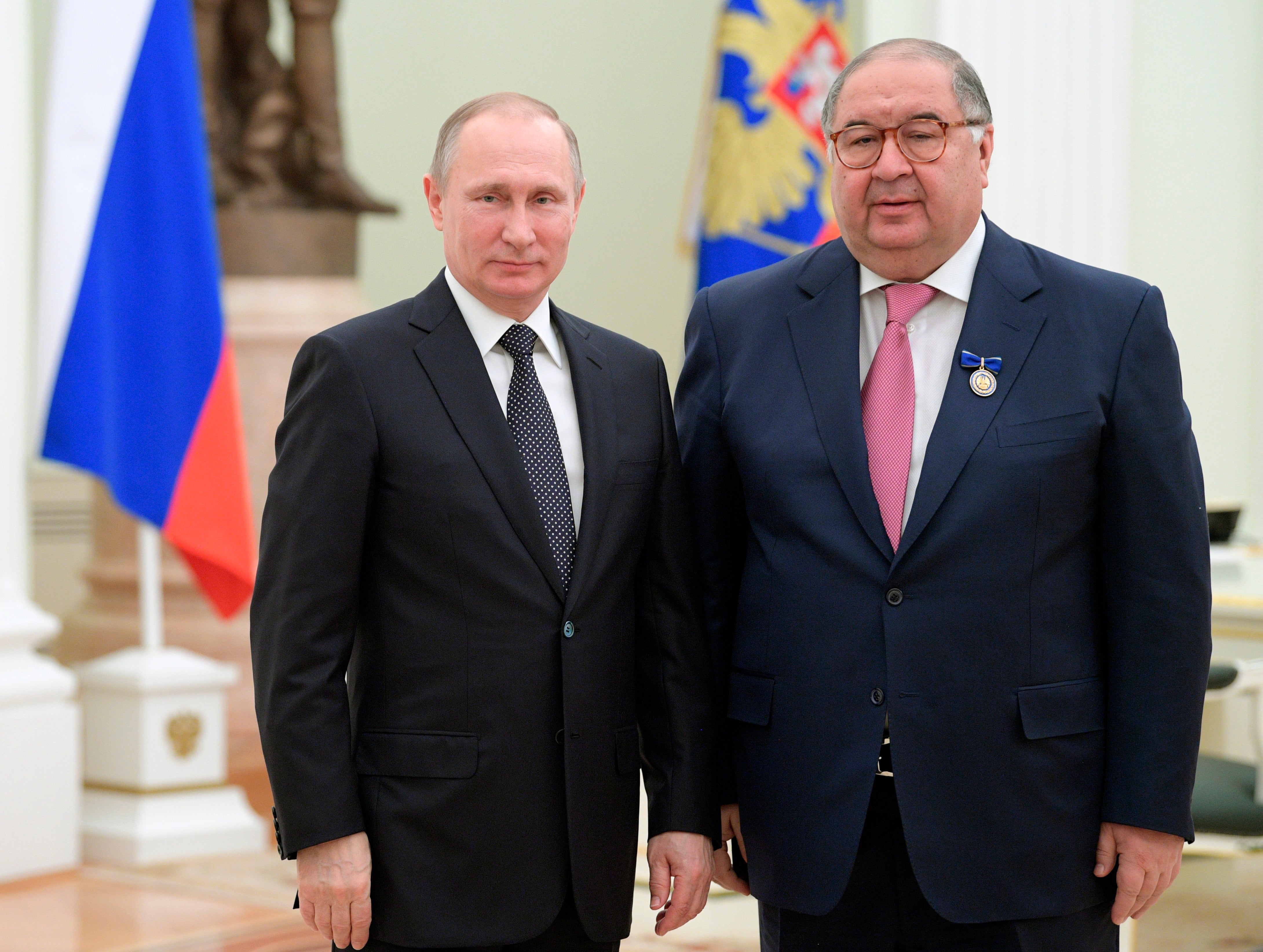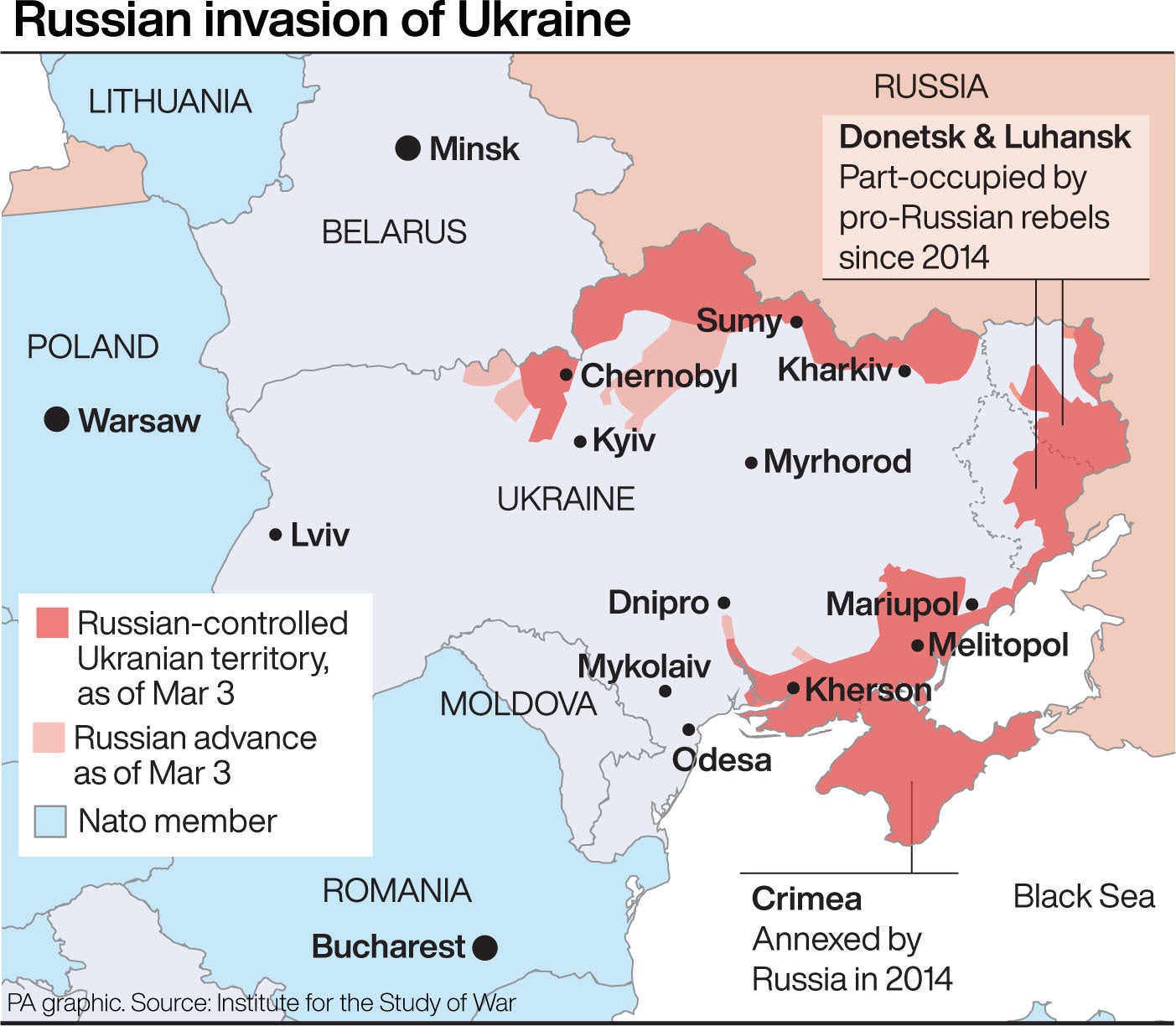Russian energy sector next in line for UK sanctions over Ukraine
Your support helps us to tell the story
From reproductive rights to climate change to Big Tech, The Independent is on the ground when the story is developing. Whether it's investigating the financials of Elon Musk's pro-Trump PAC or producing our latest documentary, 'The A Word', which shines a light on the American women fighting for reproductive rights, we know how important it is to parse out the facts from the messaging.
At such a critical moment in US history, we need reporters on the ground. Your donation allows us to keep sending journalists to speak to both sides of the story.
The Independent is trusted by Americans across the entire political spectrum. And unlike many other quality news outlets, we choose not to lock Americans out of our reporting and analysis with paywalls. We believe quality journalism should be available to everyone, paid for by those who can afford it.
Your support makes all the difference.Britain is to step up action against Russia’s oil and gas industries as part of its efforts to isolate Vladimir Putin’s regime globally.
Sanctions imposed by London in the wake of the invasion of Ukraine have so far focused largely on the banking and defence sectors, along with a handful of oligarchs close to the Russian president.
But The Independent understands that the focus will move next week to measures directed at the energy industries which earn Russia much of its international revenues.
It is hoped that these steps will have a quicker impact than the faltering campaign to freeze the UK assets of wealthy Russians, which has been slowed by legal requirements to establish a watertight case for each individual before acting.
Putin cronies such as Alisher Usmanov and Igor Shuvalov are now unable to sell, rent, visit or even repair their mansions worth millions in the UK. And ministers are even talking of seizing them to use as housing for Ukrainian refugees.
But with dozens of oligarchs being considered for sanction along with 350 members of the Moscow parliament, officials admit it could take months for blacklists to take effect.
On Friday the foreign secretary, Liz Truss, used meetings with allied counterparts in Brussels to urge the west to wean itself off Russian energy supplies as a key means of imposing a price on Putin for his aggression.
The EU foreign affairs chief, Josep Borrell, did not rule out the suspension of EU gas imports, telling reporters who asked if that was an option: “We will consider everything. Everything remains on the table.”
While sanctions have disrupted much of Russia’s trade with the outside world, gas and oil supplies have kept flowing, and the spike in global prices has done much to offset the impact on Moscow of losses elsewhere.
The UK imports only about 3 per cent of its gas from Russia, compared to about 40 per cent for the EU, which also gets 25 per cent of its oil from its eastern neighbour.
Boris Johnson has said that Europe needs to “work together to wean ourselves off – to end the dependency on – Russian gas”, and has suggested that the UK could assist allies with renewable technologies to help make the switch from fossil fuels.
And ministers have told officials working on the UK sanctions package in Whitehall that energy is an area where they want tougher action.
Measures already announced in the financial sector are believed to have had a knock-on impact on Russian energy firms, for instance by stopping Gazprom from continuing to raise billions for investment from the London markets, as it has in recent years.
Any direct sanctions on energy firms are likely to be taken in coordination with US and EU allies, as unilateral action might have the impact only of raising prices on the global market.

Practical measures to wean the EU off its reliance on Russian energy could include a significant increase in deliveries of liquefied natural gas (LNG) from sources such as Qatar at ports across the continent, with the aim of meeting demand next winter if supplies from Russia are cut off.
It is thought that EU states like Germany and Italy, which are heavily reliant on Russian gas, have enough stocks to see them through the remainder of the colder months, and there are hopes that new distribution networks could help ensure supplies of LNG are available to them by the autumn.
A partial ban on Russia’s use of the Swift financial transaction system has permitted continued payments for fuel.

And while Russian ships are banned from docking at British ports, vessels from other countries carrying Russian gas are still allowed to unload.
Dockers at the LNG terminal on the Isle of Grain in Kent refused to unload tankers carrying Russian gas.
Also likely to be next in line for UK measures is the services sector, with the Treasury already taking action in the insurance market and similar steps likely to follow.
And legislation is expected to give longer-term effect to the exclusion of Russian aviation from UK airports, after it was initially introduced last week through temporary orders.
Join our commenting forum
Join thought-provoking conversations, follow other Independent readers and see their replies
Comments